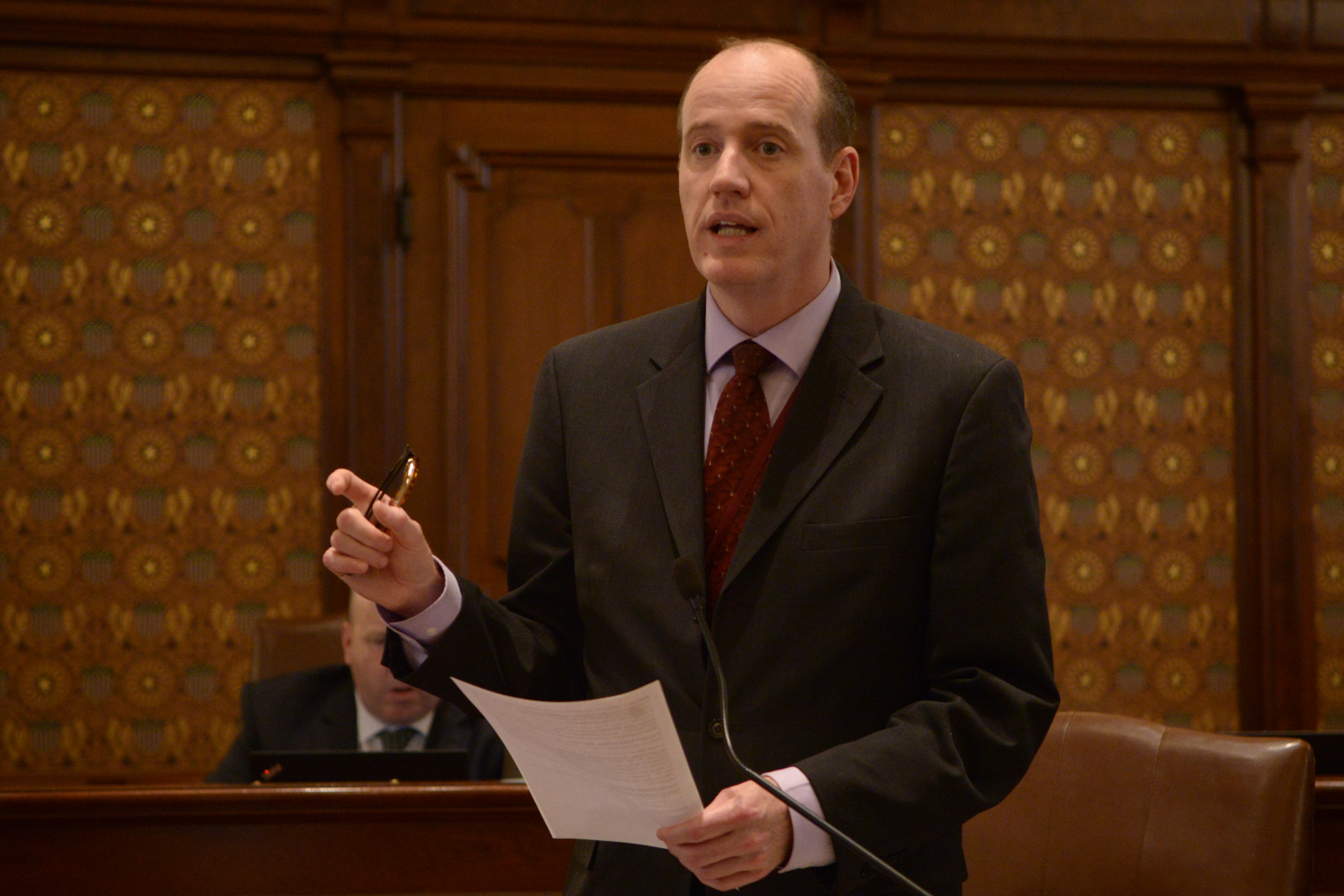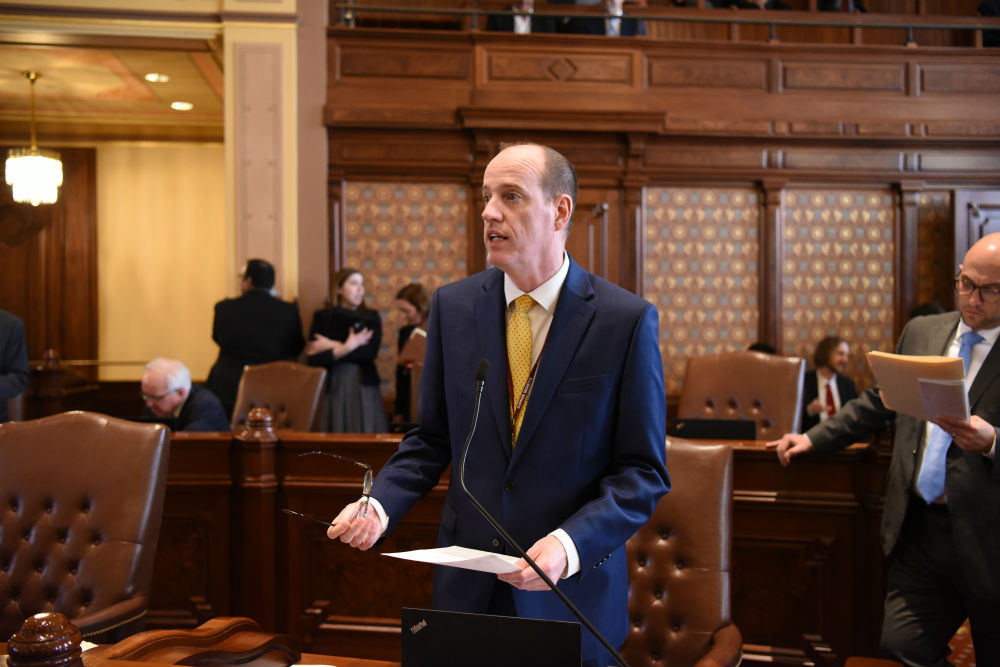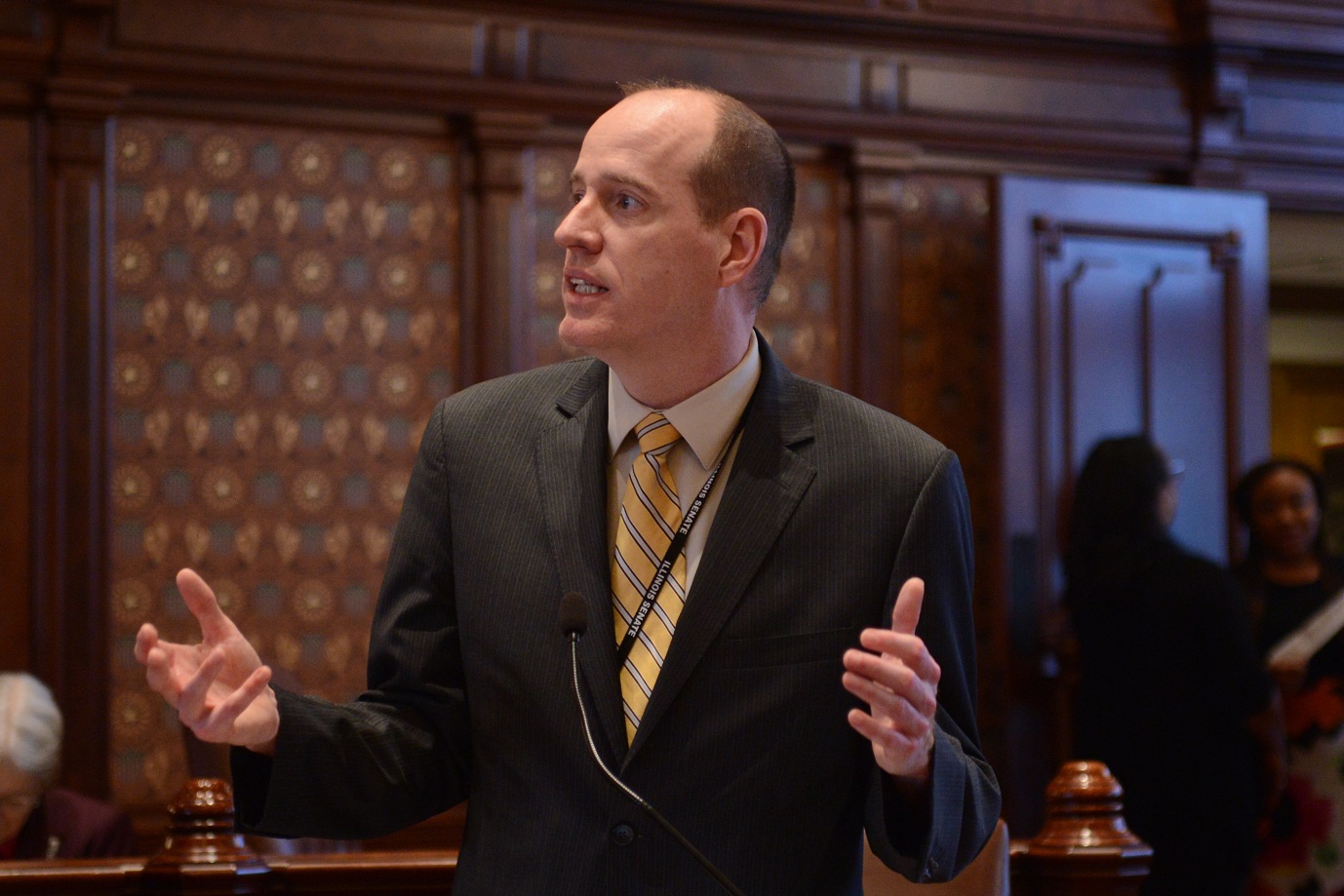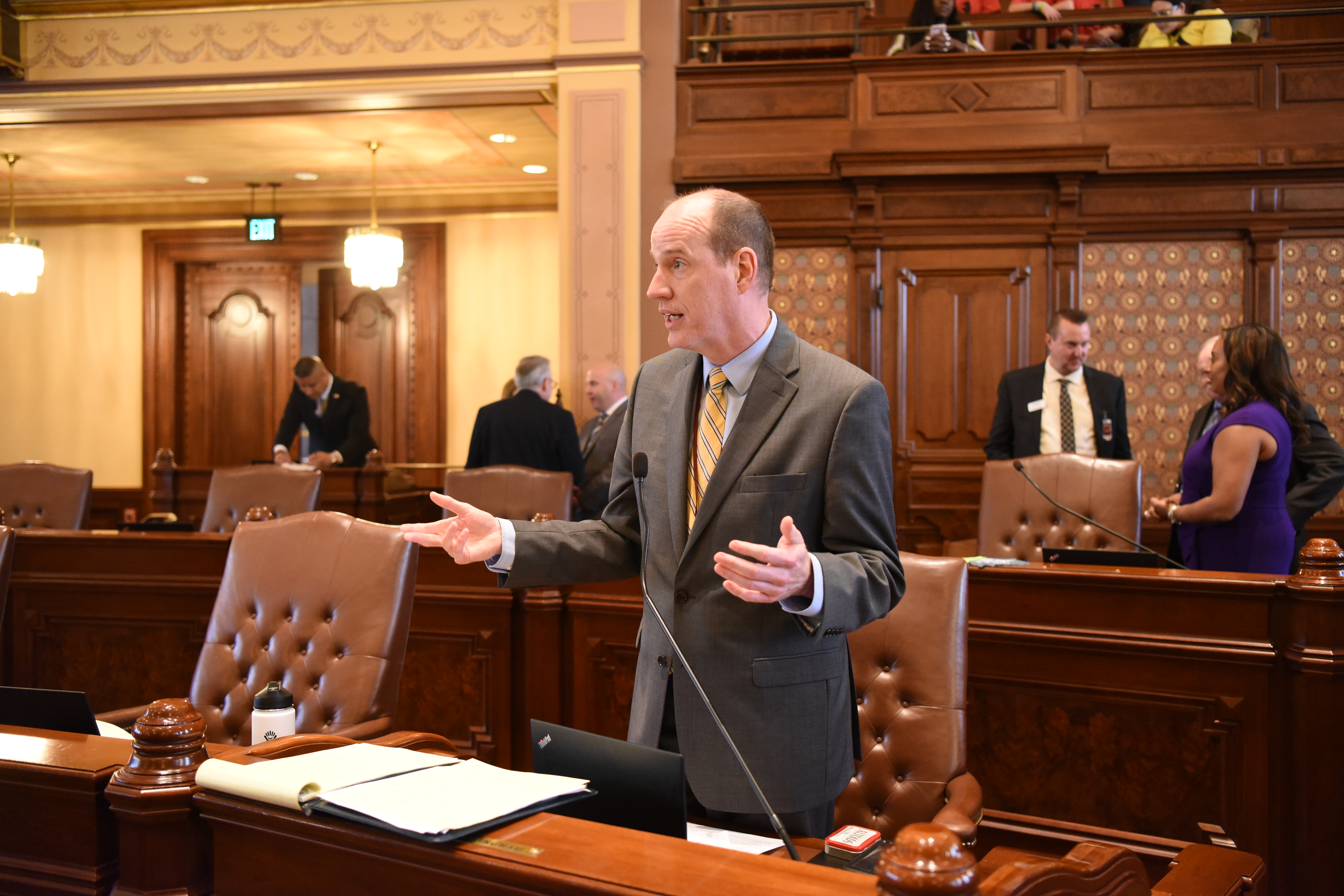- Details
- Category: Press Releases

The package will release over $45 billion in funding to improve Illinois’ roads, bridges, schools, hospitals and other public infrastructure.
“We’re committing ourselves to making Illinois’ public infrastructure system one of the best in the country,” said State Senator Bill Cunningham, a Democrat who represents portions of Chicago and the southwest suburbs. “We’ve been kicking the can down the road on this issue for far too long and it’s time to step up and make a serious investment to better the lives of Illinois residents.”
The construction plan is the state’s first in a decade, and since the last major infusion of infrastructure funding in 2009, ratings groups have increasingly raised red flags about the state of Illinois’ infrastructure.
“We’ve seen firsthand how severe our infrastructure problems have gotten right here in the Chicago area area with the recent closure of the Lakeshore Drive bridge, which delayed thousands of commuters for hours,” Cunningham said. “This new funding is long overdue and I’m glad to see that we’re making a serious commitment to investing in our infrastructure.”
The construction plan also includes the creation of the Illinois Works Task Force, which will help recruit and train individuals to work on the newly funded construction projects. The program is expected to bring thousands of new jobs to the state.
“We’re not just rebuilding our state, we’re putting Illinoisans to work doing it,” Cunningham said. “This package represents an investment in both our infrastructure and the people of our state.”
- Details
- Category: Press Releases
 SPRINGFIELD – State Senator Bill Cunningham voted Sunday for a gaming expansion package that includes a new casino in Chicago to bolster economic activity in the region and help bring stability to the city’s finances.
SPRINGFIELD – State Senator Bill Cunningham voted Sunday for a gaming expansion package that includes a new casino in Chicago to bolster economic activity in the region and help bring stability to the city’s finances.
“The introduction of a casino in Chicago will introduce 4,000 new jobs to the city and be a major economic booster for the entire region,” said Cunningham, a Democrat who represents portions of Chicago and the southwest suburbs. “This is a big win for the greater Chicago area.”
Under the legislation, 33 percent of the revenue from the casino will be used to help pay for the city’s police and fire pension funds.
“This plan isn’t just freeing up money for us to use at our discretion, we’ve made sure that any money from a new casino will be used in a fiscally responsible way,” Cunningham said. “This proposal is going to bring financial stability to Chicago and help ensure its pension obligations are paid for.”
Senate Bill 690 passed the Senate XX-XX. It will now head the governor’s desk.
- Details
- Category: Press Releases
 SPRINGFIELD – The Illinois Senate passed a bill sponsored by State Senator Bill Cunningham Thursday that would ease the financial burden on Chicago police officers who litigate to receive certain benefits.
SPRINGFIELD – The Illinois Senate passed a bill sponsored by State Senator Bill Cunningham Thursday that would ease the financial burden on Chicago police officers who litigate to receive certain benefits.
Under current law, the board of trustees for the PABF can issue a denial of the continuance of a duty or occupational disability benefit for a member. Members can appeal the denial, but the cost of litigating the appeal can be a heavy burden.
House Bill 2470 would require the Policeman’s Annuity Benefit Fund of Chicago (PABF) to pay court costs, litigation expenses and reasonable attorney fees for members who were unfairly denied duty or occupational disability benefits.
“Officers earn their benefits by risking their lives day in and day out to protect us and they shouldn’t have to face a financial barrier to accessing them,” said Cunningham, a Democrat who represents portions of Chicago and the southwest suburbs. “This bill is a major win when it comes to protecting the hard earned benefits these men and women deserve.”
The PABF may still strip an officer of benefits if an officer intentionally and unjustifiably delays proceedings and is ultimately convicted of a felony related to his or her service.
House Bill 2470 passed the Senate 50-8. It will now return to the House of Representatives for concurrence before going to the governor’s desk.
- Details
- Category: Press Releases

House Bills 2766 and 2767 both passed with bipartisan support, marking a major win in the fight against mental health concerns plaguing first responders.
“Officer suicide has become an epidemic in recent years and it’s time to take serious action to help our law enforcement community,” said Cunningham, a Democrat who represents portions of Chicago and the southwest suburbs. “I’m committed to doing all I can to make sure officers have all the resources they need available to stop these tragedies from continuing.”
House Bill 2766, on which Cunningham is a cosponsor, creates the First Responders Suicide Prevention Act. The act includes provisions to implement training for individuals tasked with providing peer support counseling to colleagues, requires police and fire departments to develop disciplinary measures for those who violate confidentiality agreements and creates a civil cause of action for employees whose employment status is adversely affected by information obtained during a counseling session.
“The best person to provide support for an officer or firefighter who is experiencing mental health issues is a peer who understands the pressure they deal with at work,” said Cunningham. “This legislation will empower these men and women to provide ample support for their colleagues and ensure the confidentiality of peer support is protected.”
House Bill 2767, which Cunningham sponsors, would require the Illinois Law Enforcement Training and Standards Board to develop a course addressing the issues of officer wellness and suicide prevention. The course would be included in the training requirements police officers must complete before graduating the police academy and would also need to be completed every three years after graduation.
The training would be required to include recognizing signs of work-related cumulative stress, issues that may lead to suicide and solutions for intervention with peer support resources.
“There’s been a stigma for far too long among law enforcement officers that seeking help for mental health issues makes you weak or unfit for your work,” Cunningham said. “There’s nothing further from the truth and I hope that this course will preempt this myth by showing officers that it’s okay to ask for help.”
House Bill 2766 passed the Senate 48-7. House Bill 2767 passed the Senate 55-0.
More Articles …
- Cunningham passes measure to deter threats of school violence on social media
- Cunningham advances measure improving access to benefits for Chicago police
- Cunningham advances measure to crack down on school violence threats made on social media
- Cunningham named Legislator of the Year by Associated Fire Fighters of Illinois
Page 30 of 70



